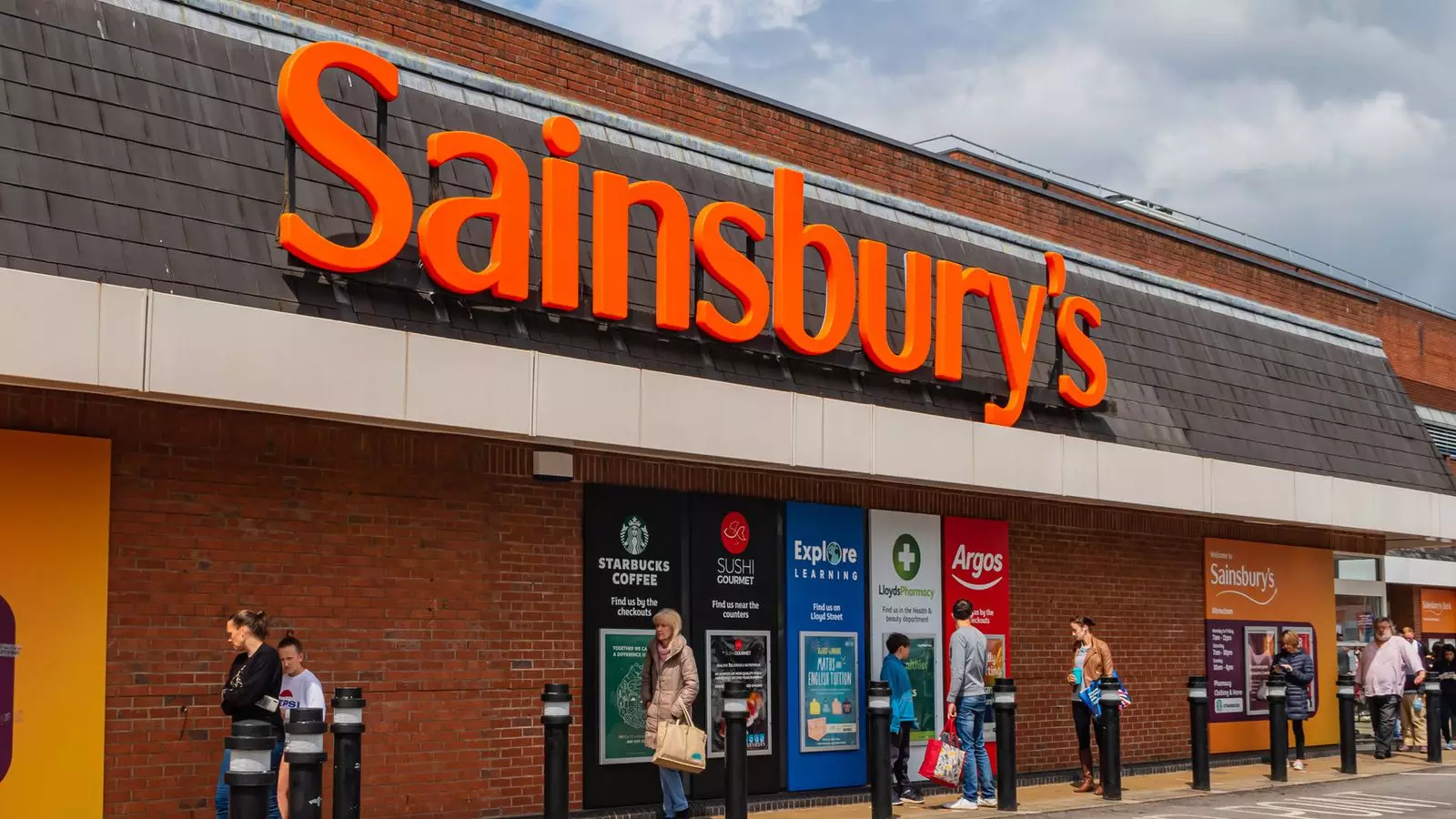In a telling move reflective of the current economic climate, Sainsbury’s has announced plans to lay off over 3,000 employees. This decision, which affects roles primarily within the head office and senior management, marks a significant shift for the supermarket giant. The company also revealed its intent to close all 61 remaining in-store cafes, along with various hot food and pastry counters. As consumers increasingly prioritize convenience and efficiency, Sainsbury’s cited that these services had seen a decline in usage, prompting this sweeping overhaul. The chain is grappling with what it describes as a “challenging cost environment,” indicating that rising expenses are pushing their operational model to a breaking point.
It is essential to consider the underlying reasons for these dramatic changes. The firm has flagged substantial cost increases stemming from recently implemented tax measures, which will affect profitability moving forward. In previous communications, Sainsbury’s executives hinted that these rising costs would necessitate difficult financial decisions, with the goal of maintaining competitiveness in a saturated market. One such burden includes an additional annual obligation of approximately £140 million attributed solely to increased employer national insurance contributions. With about 148,000 employees in the fold, these changes reprioritize investment and reinforce a strategy aimed at correcting course amidst rising costs.
Chief executive Simon Roberts emphasized that the proposed job cuts were not taken lightly. While the news signals a retreat in workforce size, Sainsbury’s is committed to supporting staff affected by the proposed changes. “We are facing particularly challenging conditions which mean tough choices must be made,” he stated. In such restructuring scenarios, companies often face backlash, particularly when cuts follow recent decisions to increase employee salaries. Initially, such adjustments may spark criticism of inconsistency in corporate priorities or raise questions regarding the sustainability of these increases amidst a backdrop of layoffs.
The announcement has elicited strong reactions from labor unions and employees alike. Union representatives, particularly from Unite, have vehemently condemned Sainsbury’s for what they describe as “corporate greed.” They are voicing concerns that this decision exemplifies a concerning trend within the retail sector, wherein substantial profits are generated, but employment levels suffer as a result. The juxtaposition of generous pay rises for some employees against the backdrop of mass layoffs creates an environment rife with dissatisfaction. These sentiments are prevalent as workers express fears not just over job security but also about the company’s long-term viability amidst turmoil.
Broader Implications for the Retail Sector
Sainsbury’s situation may echo broader challenges facing the retail sector, as industry observers warn that escalating costs could hinder both investment and employment opportunities. Many contend that aggressive cuts, such as those from Sainsbury’s, could stifle innovation and growth prospects during an already tumultuous period. Critics argue that the very workers benefitted from a modest pay rise are the same individuals now facing uncertainty, effectively showing the fragility of the retail recovery in the wake of a national economic crisis.
This sweeping overhaul aims to align Sainsbury’s operational priorities with market needs while addressing escalating costs. With competition intensifying, the company is navigating the dual pressures of rapidly changing consumer preferences and the necessity to streamline operations. Roberts reassured stakeholders that these difficult decisions are geared toward ensuring long-term sustainability and momentum. Nevertheless, the plan still bears the heavy burden of human cost, raising pertinent questions about corporate responsibility in the face of profit-driven objectives.
As Sainsbury’s sets forth with its proposed changes, the ramifications of this strategic shift will undoubtedly resonate throughout the business landscape. While the necessity of adapting to economic constraints is understandable, the response raises ethical questions regarding employee welfare amidst an atmosphere of heightened financial pressure. As consultations unfold, the focus will remain on securing the future of staff, alongside maintaining a competitive edge in the challenging retail environment. The dual prioritization of efficiency and workforce security heavily influences the trajectory of not just Sainsbury’s, but the larger retail sector as it grapples with ongoing economic realities.


Leave a Reply